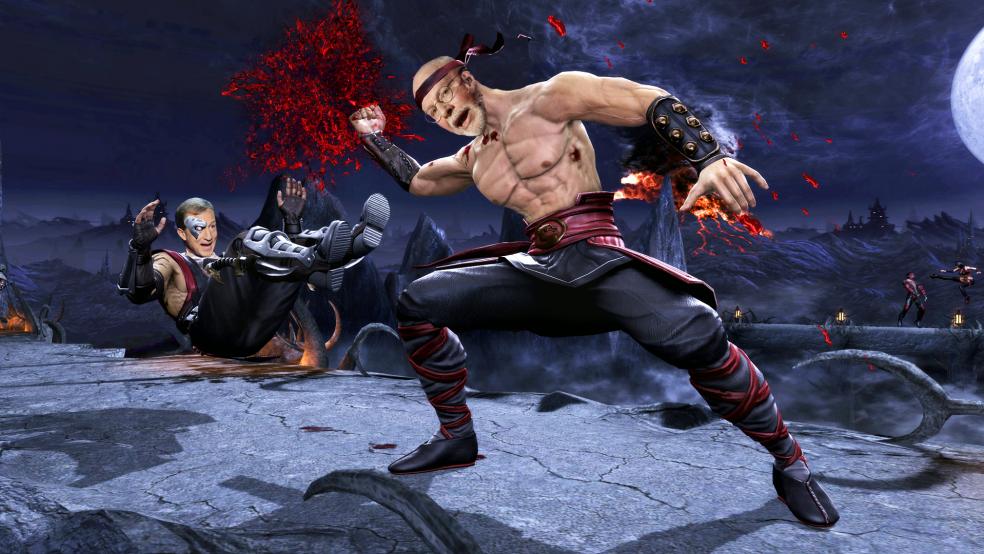It’s no secret that the Koch brothers, those ultra-conservative multi-billionaires, are spending eye-popping sums in North Carolina and other key states to try to influence the outcome of the November Senate elections.
Americans for Prosperity -- a super PAC founded by the two heirs to an oil fortune – has already spent $8.2 million on television, radio and digital ads to try to unseat Democratic Sen. Kay Hagan of North Carolina, and overall has spent more than $12 million in the nation’s six closest Senate races. That unprecedented spending exceeds the $7.6 million spent by all Senate Democratic groups combined in the competitive races.
Until now.
Related: America’s 10 Richest Oil Barons
David H. Koch and Charles G. Koch aren’t the only plutocrats trying to dictate the outcome of the election in a campaign that is quickly taking on the appearance of an outsized game of Monopoly.
A group of major Republican donors led by New York billionaire Paul Singer “is quietly expanding its political footprint ahead of the midterm elections” to reshape the direction of the GOP as a more moderate political party, Politico reported on Tuesday. That operation was launched last year with the formation of a club called the American Opportunity Alliance to bring together some of the richest pro-business Republican donors in the country – some of whom share Singer’s support for immigration reform and gay rights.
On the opposite side of the partisan spectrum, Democrat Tom Steyer, a billionaire retired investor, is making plans to spend as much as $100 million during the 2014 mid-term elections in a bid to pressure federal and state officials to enact climate change measures. Steyer would achieve that goal through a campaign of attack ads against Republican lawmakers and governors who oppose efforts to reduce greenhouse gas emissions, according to The New York Times.
Related: Super PACs Bring New Era of ‘Daddy Warbucks’
Steyer, who founded one of the world’s most successful hedge funds, made a splash last year when he spent $11 million to help elect former Democratic national party chief Terry McAuliffe governor of Virginia. Now, as the head of NextGen Climate Action, a San Francisco-based political organization, Steyer is attempting to build a campaign war chest that would rival that of the Koch brothers, according to The Times.
Steyer’s targets include the governor’s race in Florida, where incumbent Republican Gov. Rick Scott has said he does not believe that science has established that climate change is man-made. Steyer’s new group is also eyeing the Senate race in Iowa in the hope that a win for the Democratic candidate, Rep. Bruce Braley, an outspoken proponent of measures to limit climate change, could help shape the 2016 presidential nominating contests.
“Our feeling on 2014 is, we want to do things that are both substantively important and will have legs after that,” Steyer told The Times. “We don’t want to go someplace, win and move on.”
Related: Top Ten Super PAC Contributors
The rise of Singer and Steyer as players on the national political scene marks the latest chapter of a growing clash of billionaire titans who are trying to play kingmaker and reshape government policy and regulations. In the wake of the Supreme Court’s January 2010 Citizens United v the Federal Elections Commission ruling, political parties and campaign organizations have been eclipsed by the power and influence of super PACs that have access to seemingly unlimited and often anonymous special interest money.
Those conservative and liberal tax-exempt nonprofit organizations and businesses spent more than $1.4 billion during the 2012 presidential campaign cycle – or three times as much spending by outside groups as in 2008 or 2010 election. In 2012, just 100 of the wealthiest people in America gave $339.5 million to super PACS, or an average of the $3.4 million per donor, according to the Center for Responsive Politics.
“It is a reasonable notion to call these Super PACs shadow parties because they are eclipsing the activities and in some cases donor appeal of the parties,” said Sheila Krumholz, executive director of the Center for Responsive Politics. “At the same time they are often run by former party operatives or campaign operatives and are in close coordination with the donors themselves.”
“So these new outside organizations, post-Citizens United, have really taken on a kind of strategic approach that is very similar to what we used to think of as the party’s role,” she added. “And it will be interesting to see how, as this new system emerges, how the parties adapt – or if they adapt. Will they regain their central role or will they become kind of parallel tracks or even marginalized over time.”
“The unlimited contributions, the secret money and the corporate cash washing into our politics returns us to a system that existed before the reforms enacted by Congress after the Watergate scandal—an era when government decisions could be routinely purchased with campaign contributions,” wrote Fred Wertheimer, president of Democracy 21, a group that favors tighter limits on campaign spending.
This article was updated at 4:43 P.M.
Top Reads from The Fiscal Times:





